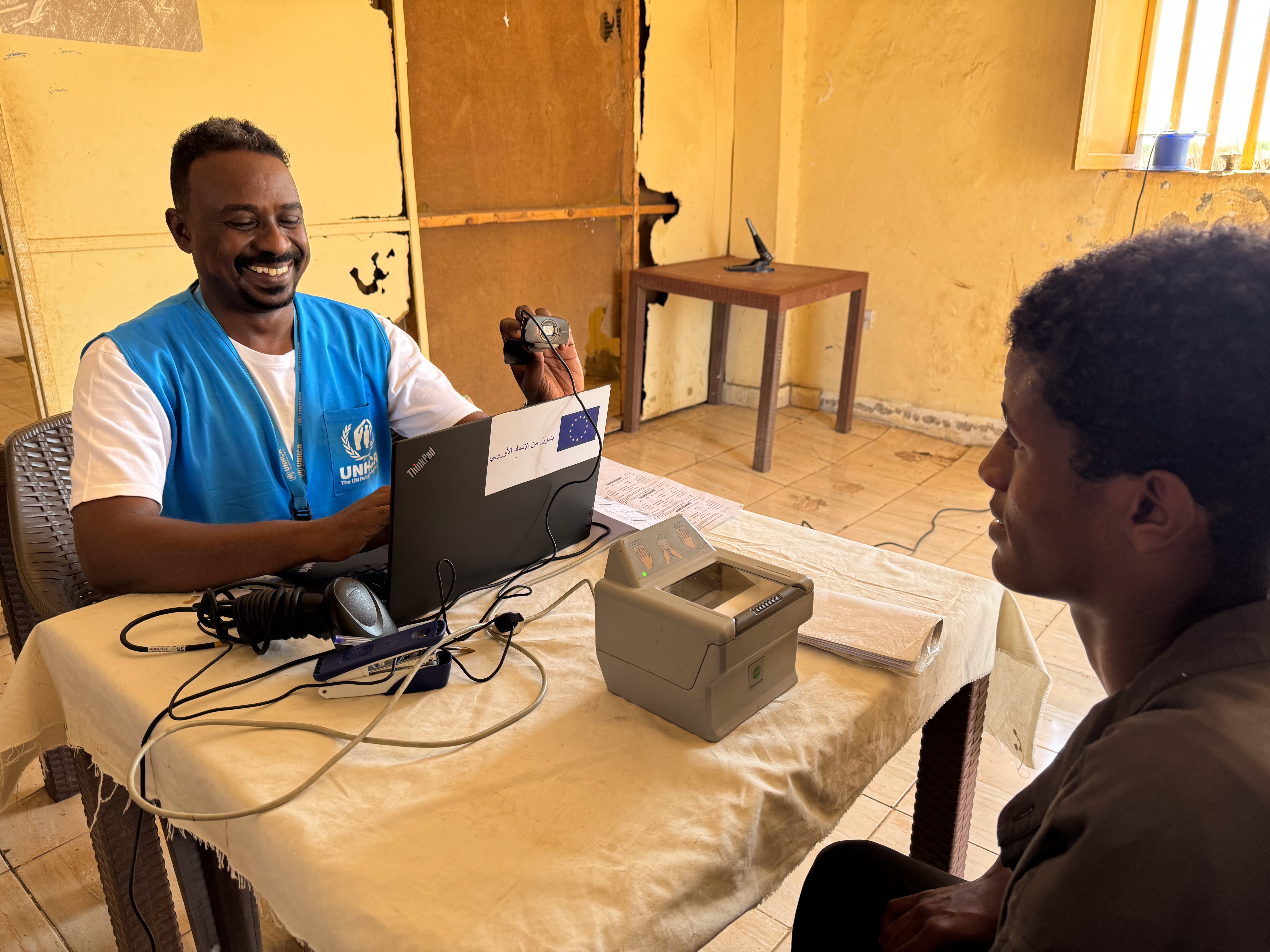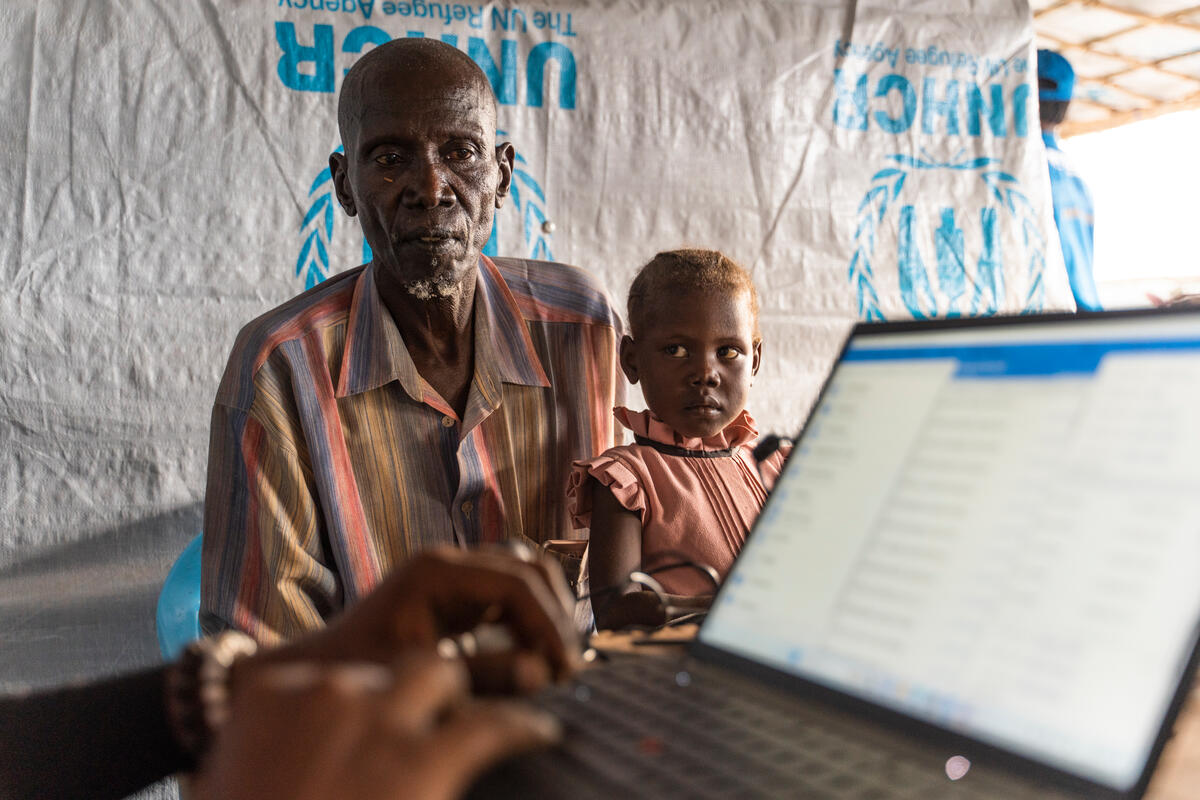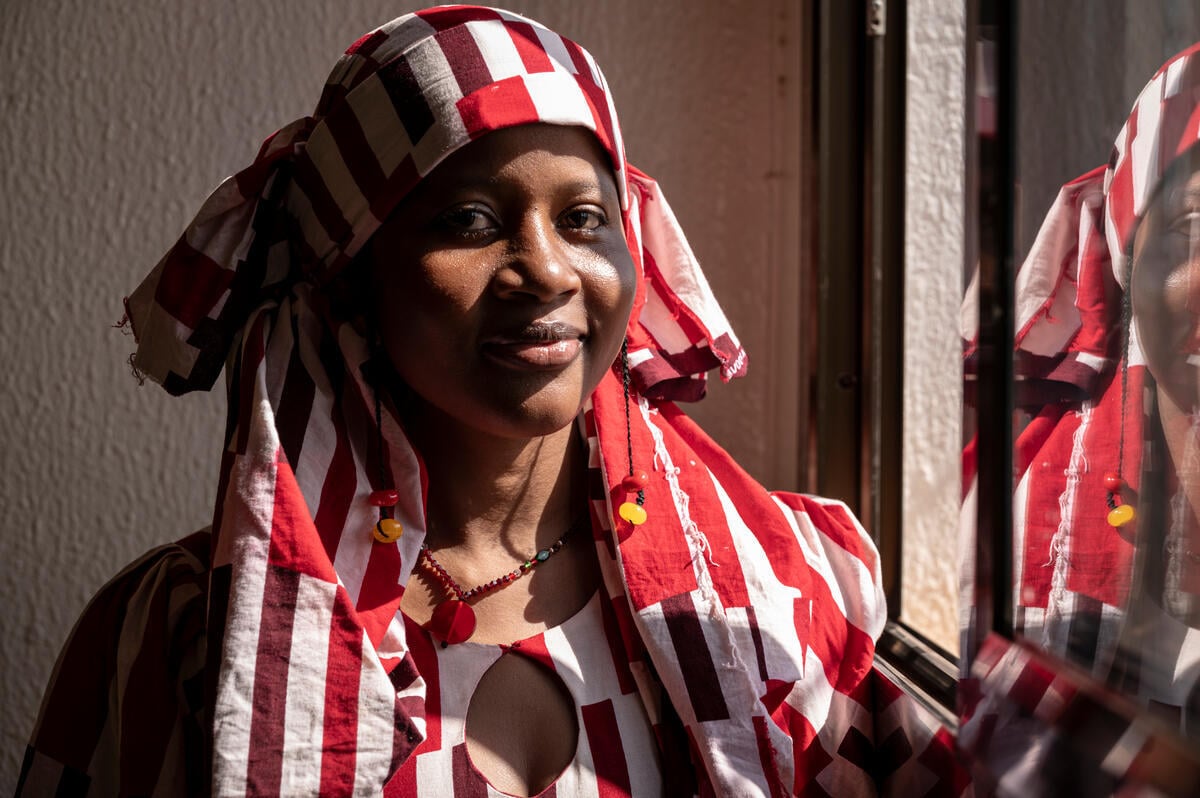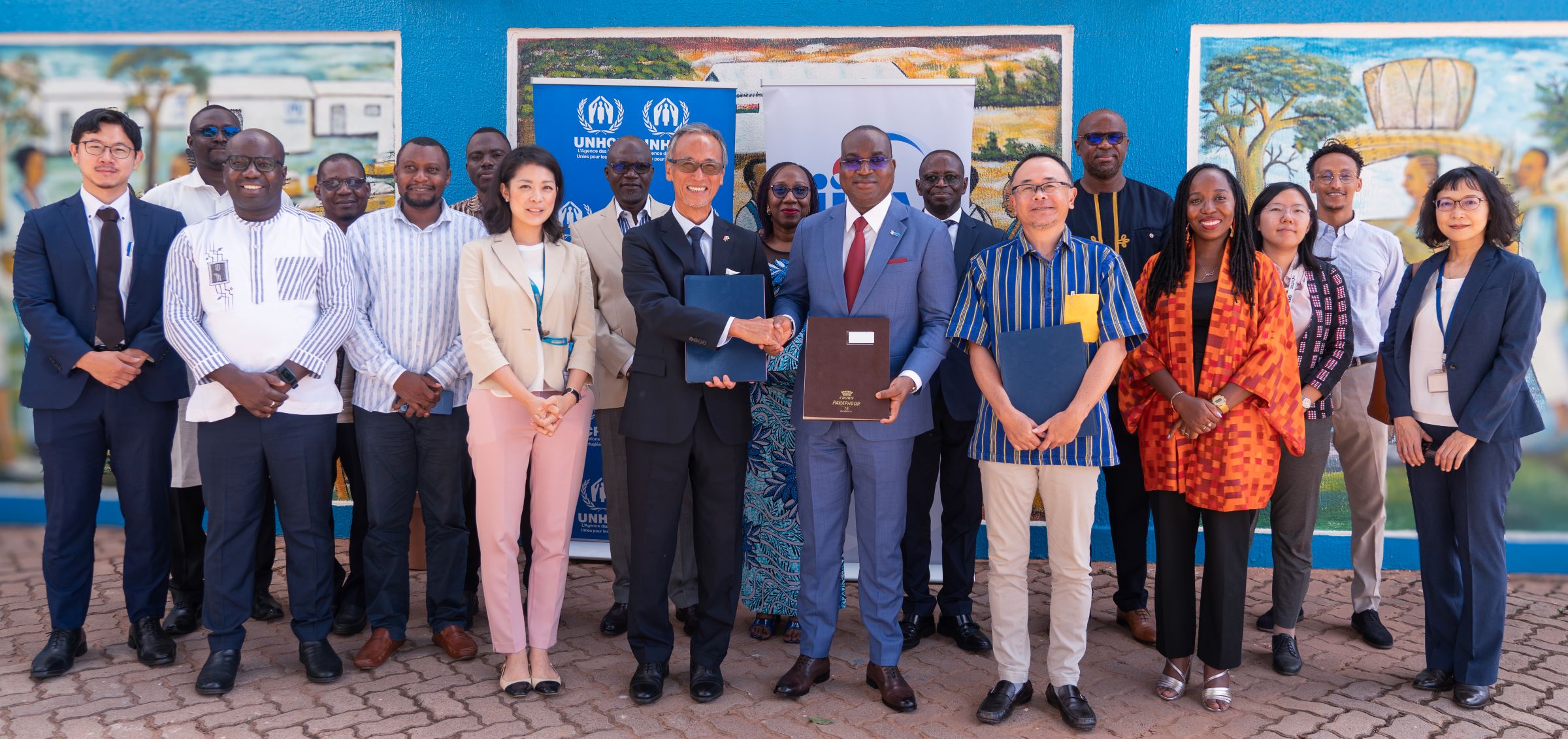How is the mpox outbreak impacting refugees and displaced people?
How is the mpox outbreak impacting refugees and displaced people?

Lack of clean water and soap present a challenge for mpox prevention efforts in sites for displaced people like this one in the Democratic Republic of the Congo's North Kivu province.
You may have heard about mpox in the news, especially since the World Health Organization (WHO) declared it a public health emergency of international concern last month – but what exactly is it, and how is it affecting refugees and other displaced people? We spoke with Dr. Allen Maina, Chief of Public Health at UNHCR, the UN Refugee Agency, to learn more.
What is mpox and how does it spread?
Mpox (previously known as monkeypox), is an infectious disease caused by the monkeypox virus. It can cause a painful rash, enlarged lymph nodes and a fever. With proper treatment, people can make a full recovery from mpox, however without proper care, people can fall seriously ill or even die from the disease.
Anyone can get mpox. It spreads through close contact – sexual or non-sexual – with an infected person, through contact with infected animals, or by touching contaminated items like clothing or bedding. Mpox can also be passed from a pregnant mother to her baby during pregnancy or childbirth. Mpox can be particularly severe in children, immunocompromised individuals, and pregnant women.
Where are we seeing the most mpox cases?
Between the beginning of the year and 1 September, more than 20,000 cases of mpox have been reported from 14 countries in Africa. The vast majority of cases (around 19,000) are in the Democratic Republic of the Congo (DRC) where, sadly, some 600 people are reported to have died from the disease.
We are also seeing a rise in cases in neighbouring countries like Burundi, the Republic of Congo and Rwanda.

Why is UNHCR concerned about mpox?
The DRC and its neighbouring countries are home to millions of people who have been forced to flee their homes because of conflict, natural disasters, and instability.
As I mentioned, anybody can contract or pass on mpox, regardless of whether they are displaced. However, in refugee camps and displacement settings, people often live in overcrowded conditions with limited access to essentials like soap, clean water, or bedding. This makes it hard to follow preventive measures like handwashing. Access to health care is also a challenge. We are starting to see some suspected cases of mpox among refugee populations in these countries.

Adolphe Mbabangaka, 68, collects water from a communal tap at the Rusayo site for internally displaced people in North Kivu.
My colleagues in the DRC have spoken to displaced people who suspect they have mpox. Because there is not enough space in shelters to safely isolate themselves, they have to sleep outside. They want to protect their family and friends, but it is a real challenge without adequate resources. Additionally, limited food rations weaken people’s ability to fight off illnesses. In these circumstances, mpox poses a significant risk.
What is UNHCR doing to help prevent the spread of mpox among refugees and displaced people?
We all have a stake in making sure that the mpox outbreak is contained as quickly as possible. UNHCR is committed to helping countries and communities protect displaced people, which includes ensuring they have access to prevention and treatment. We need to work together to ensure refugees and displaced people have basic hygiene items, sanitation facilities and sufficient food, as well as accurate and accessible information on mpox in their own language. More shelters are also needed to allow proper isolation.
We are providing as much soap, clean water, and handwashing facilities as possible. We are also equipping health facilities to ensure safe and effective clinical care for patients and health-care workers and strengthening surveillance. We are training and equipping refugee health volunteers to address stigma and raise awareness in displaced and host communities about how mpox spreads and how to prevent it. But let me be clear, in many locations our teams are working with desperately meagre resources where health systems are fragile and needs are only growing as this outbreak continues.
On a national level, we are advocating with governments to include refugees in their preparedness plans and working hand-in-hand with the WHO and partners in support of national responses to mpox. As vaccines become available for targeting individuals at the highest risk of infection, we will continue to advocate for and support the inclusion of refugees and displaced people in vaccine programmes.
However, decades of conflict and insufficient funding in the DRC have severely impacted health activities and forced UNHCR and partners to make difficult choices. We need more funding to scale up critical response efforts, but we also need peace in conflict areas so humanitarian aid can reach those in need and people can access testing and treatment without risking their lives.












